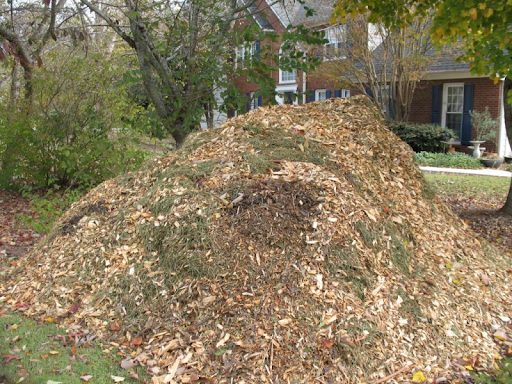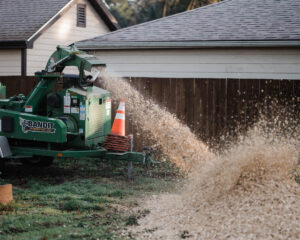
Wood chips aren’t used enough, and it’s a shame. They are the byproduct of tree removals and trimmings. Arborists will throw all of the wood they cut into a chipper, and out the other side comes a magical and nutritious (to trees) mulch.
We end up having so much excess of this precious commodity that we usually have to give it away, but if people understood how happy wood chips make plants, they would be clamoring for it!
Modern marketing has made a mockery out of what plants want. Let’s take a look at what plants don’t want and what they do want.
What Plants Don’t Want:
- Plants don’t like dry, crusty soil compacted by machines or human activities. That means leave everything the way it is. The foliage from the trees decomposes and adds nutrients to the soil.
- Most plants don’t require fertilizer.
- Most plants don’t require any pruning (obviously, there are many exceptions), but it’s amazing to see what is done to plants in the name of “making it look better”.
- Most plants don’t like dry soil at any depth. Most roots of trees, shrubs, and lawns are within the first 6” of the soil, especially in the summer months.
What Plants Do Want:
- Most plants do want uncompacted soil, with a healthy layer of natural, decomposing matter.
- Most plants do want moisture in the soil.
- Most plants do want to be left alone.
Now that we have a good understanding of what plants want, let’s take a look at what wood chips don’t do and what they do do to aid plants.
What Wood Chips Don’t Do:
- They don’t rob the soil of nitrogen.
- They don’t lower the PH of the soil.
- They don’t attract termites, carpenter ants, and other pests. In fact, because of the diverse sizes shapes and in many cases stages of decomposition, you get a much more diverse population of beneficial insects.
- They are not a fire hazard, another misconception. The finer textured mulches are more likely to combust.
- They don’t transmit diseases. Most studies show that this does not happen; however, wood/wood chips should not be worked into the soil as an amendment.
What Wood Chips Do: 
- They do keep the soil at an even temperature, kind of like a blanket.
- They do help prevent weed
- They do reduce the need for chemicals.
- They do prevent soil compaction. This is a big deal in the life of a plant. If the soil is compacted, the roots are restricted.
- They do minimize the use of water during the summer months. They hold in the moisture much longer than if the soil was bare.
- As the chips break down from fungal pathogens that feed on the cells of the wood, they form a mycorrhizal association between the fungus and the roots of the plants. Is that great or what? It’s free food, what nature has designed millions of years ago.
- Because the roots are happy, the plant is able to fight off biotic pathogens.
- Moisture penetrates into the wood chips instead of crusting like many bark and mulch products. This is a massive benefit to the plant’s roots.
How You Should Apply Wood Chips
We recommend that you start using wood chips in one section of your yard and assess how those plants are doing in 1 year. Use a depth of approximately 4”. The trees should have leaves that are darker green, larger, and the plants should look healthier. Do not build up around the crown of the trees. The buttress roots should still be showing.
Think about who is selling you what and why. Really think about what you are doing to your plants before you do something. From a plant’s perspective, it is not about cleaning up the debris, it is about keeping the roots happy, and wood chips do just that!